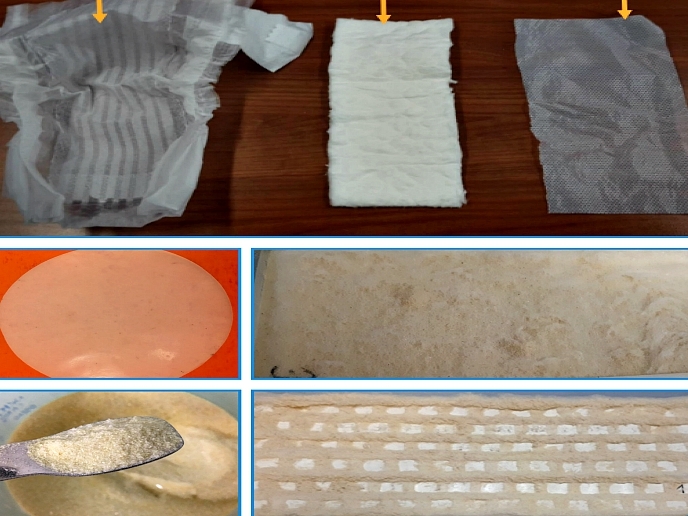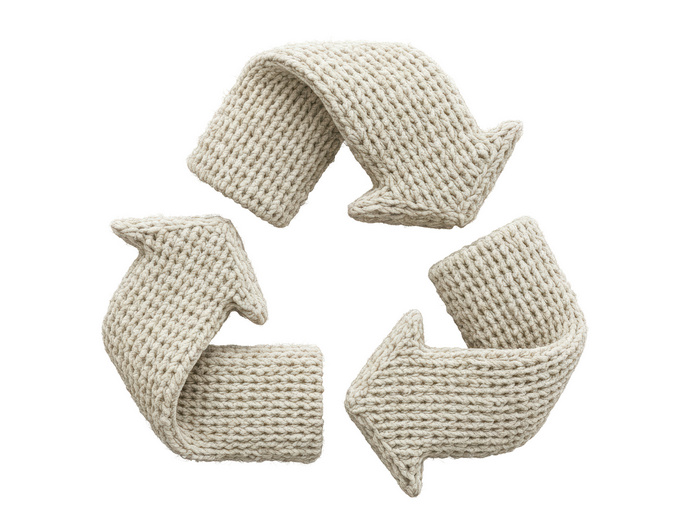Novel materials for high-performance, eco-friendly skin-contact products
Most skin-contact products in the cosmetics, personal care, sanitary and biomedical industries are still made from fossil-based polymers that are not recyclable or biodegradable. There’s a need to replace conventional fossil-based materials with more sustainable, bio-based alternatives in high-value market segments. The market for products in all these sectors is massive. However, due to increased competition, growing ecological awareness and changing consumer demands, the market is looking for more healthy and sustainable product options with reduced environmental footprint.
Unprecedented skin compatibility properties and functionalities
The EU-funded POLYBIOSKIN(opens in new window) project formulated and developed bio-based, biodegradable and biocompatible materials to deliver skin-contact products for the hygiene, cosmetic and biomedical industries. The products used as models were a nappy, a face beauty mask and a wound dressing. All three products are very representative of these target industries. Project partners produced three high-performance prototypes that were validated in a relevant industrial environment. These prototypes were created by using bio-based materials, in particular polylactic acid(opens in new window), polyhydroxyalkanoates(opens in new window), as well as other biopolyesters(opens in new window) and polysaccharides(opens in new window), such as chitin nanofibrils, nanolignin, pullulan and starch. The novelty in these products lies in the fact that they are mostly bio-based – the renewable content is about 90 %. In addition, they comply with safety and regulatory requirements. High performance is granted by exploiting bionanotechnology. Advanced in vitro experiments confirmed the products’ compatibility with skin. “The importance of these compatibility tests is also linked to the value that bio-based materials could bring to a market that shouldn’t just be focused on environmental impact,” explains project coordinator Simona Neri. “Indeed, the beneficial properties demonstrated in terms of compatibility could also justify the materials’ higher price in the market.” The researchers also tested the three products’ end of life in terms of their compostability. Compostable products should lead to better management of solid waste in the future.
Unleashing the potential of bio-based polymers
The new nappy contains antimicrobial and antioxidant functionalities to prevent skin reddening and inflammation. The facial beauty mask is based on electrospun textiles or films impregnated with functional bioadditives, thus releasing active molecules that are beneficial for the skin. The tissue used in the wound dressing protects the skin of people with temporary or chronic wounds. The developed materials’ antimicrobial properties stimulate skin cells' viability and self-defence. These properties were exploited in all the products. The POLYBIOSKIN team laid the groundwork for a deeper examination of materials that come into contact with skin, in sectors applying for regulation that aren’t as strict as the biomedical industry, for example. The team also paved the way for the further investigation of biomaterials and their properties that continue to remain unexplored. “Thanks to POLYBIOSKIN, the possibilities of new-generation, bio-based materials finding applications in these important industrial sectors were demonstrated, opening up potential routes and markets for bio-based products with high performance,” concludes Neri. “It’s a truly disruptive project that for the first time took into consideration the development of sensitive bio-based products and investigated the intrinsic properties of biomaterials.” POLYBIOSKIN received funding from the Bio-based Industries Joint Undertaking(opens in new window), a public-private partnership between the EU and industry.







